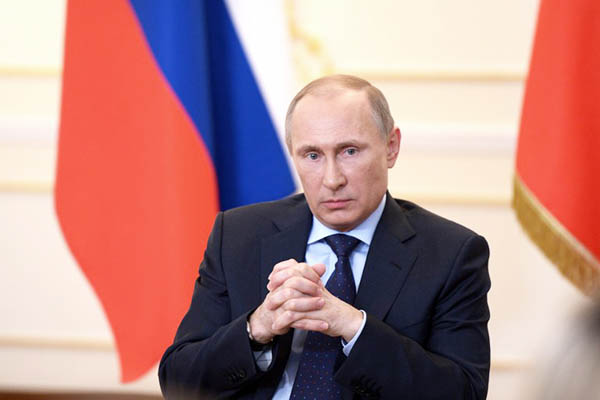
Alexey Nikolsky—AFP
New rules allow Moscow to block bank accounts of any organization until it can ‘account for its actions.’
Russian President Vladimir Putin officially enacted a controversial law banning “undesirable” non-governmental organizations, the Kremlin said Saturday, in a move condemned by human rights groups across the board.
The law allows authorities to bar foreign civil society groups seen as threatening Russia’s “defense capabilities” or “constitutional foundations” and go after local activists working with them, the Kremlin statement said.
Supporters presented the law as a “preventative measure,” necessary after the wave of Western sanctions put in place over the Ukraine conflict. Under the law, passed by the Russian parliament this week, authorities can ban foreign NGOs and go after their employees, who risk up to six years in prison or being barred from the country.
It also allows them to block the bank accounts of the organizations until the NGOs “account for their actions” to the Russian authorities.
Lawmakers cited the need to stop “destructive organizations” working in Russia, which could threaten the “value of the Russian state” and stir up “color revolutions,” the name given to pro-Western movements seen in some former Soviet republics over the last several years.
Critics have said that the vague wording of the law, which gives Russia’s general prosecutor the right to impose the “undesirable” tag without going to court—could allow officials to target foreign businesses working in Russia.
Amnesty International called it “the last chapter in the unprecedented repression against non-governmental organizations.”
The measure complements legislation already passed in 2012, which forces NGOs that receive foreign funds to register as a “foreign agent.”
